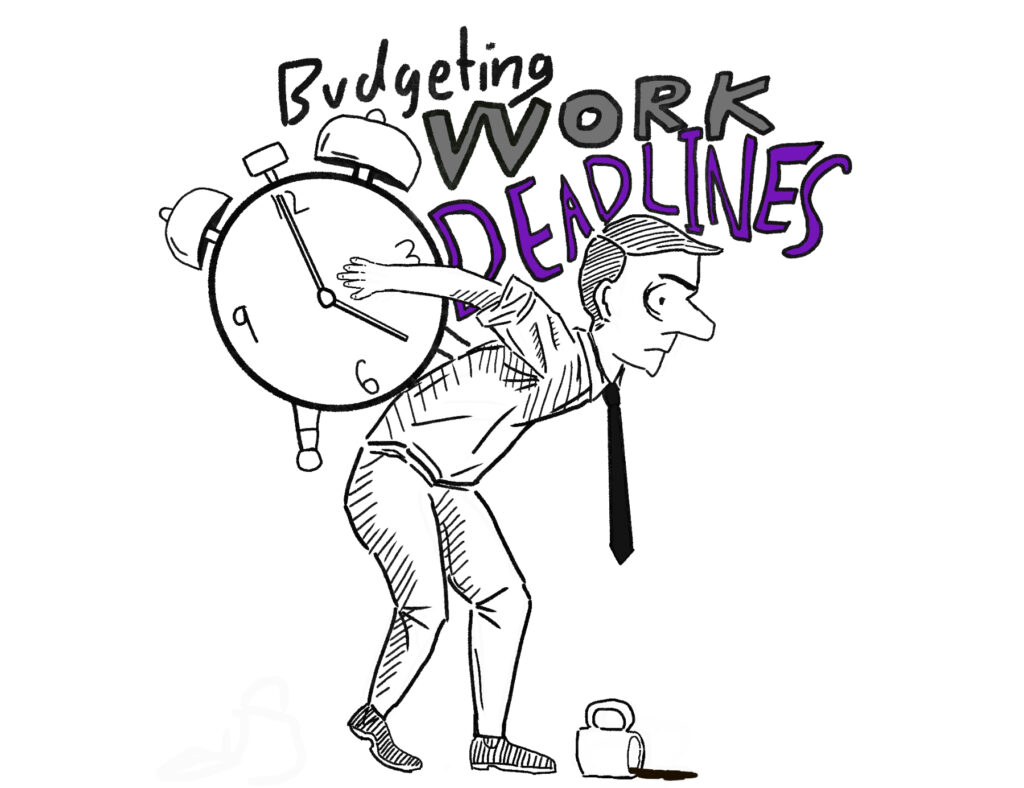
Credit to Ian Wang
“STUDY WITH ME” videos that romanticize sitting at a desk for up to eight hours at a time bombard many people’s YouTube home pages. Many people’s TikTok For You Pages and Instagram Reels show self-proclaimed productivity gurus giving every possible tip about how to be productive and how to maximize time. However, this is ironic because scrolling through these social media platforms is often believed to be unproductive
According to Cambridge Dictionary, productivity is “the ability to do as much work as possible in a particular period.” Productivity suggests an idyllic mindset that many people use to motivate themselves. This mindset has many different motives for different people, which can be both internal and external.
“My parents push me to be productive, especially with … school,” said junior Midori Saito. “But they also try to warn me more about the risks of pushing myself … when it’s going to mentally hurt me.”
Some students view parental pressure as being more positive than negative.
“Personally, I want to show [my parents] that I can succeed on my own,” said junior Kylie Avila. “I want to make them proud.”
With these parental pressures also come college pressures. Getting into a good college, getting a good job and future opportunities are all components that add to student anxieties and overall pressure to be productive.
“I have big goals for myself outside of high school,” Avila said. “It’s [high school], but this is a big stepping stone into my future goals, like college and my future career.”
Parents aren’t the only people who can put pressure on students to be productive. The academically rigorous culture at Aragon also plays a role.
“[Some of my friends] may feel inclined to do activities that seem ‘productive’ just because other people are doing it, or because they know it holds weightage in college applications,” said sophomore Reet Bhatia. “They’ll give up something they truly enjoy to switch over to something that is considered ‘productive.’”
Conversations about the number of Advanced Placement classes students take, how long a person stayed up to finish work or how early they woke up to do their homework seem to be a daily occurrence around campus. Late-night studying seems to be the standard, while those who get a full eight hours of sleep are considered miracles and rarities.
However, conversations about the importance of mental health and taking breaks are in circulation. Students recognize the unsustainability in some of their productivity habits that often cause the dreaded burnout.
“The idea that you have to push yourself no matter what, no matter if you’re tired, no matter if you’re upset, no matter if you’re going through something you have to keep giving a thousand percent and pretending like nothing is happening … is an unhealthy standard to hold towards someone,” Saito said.
Even though it can still be difficult to implement these beliefs, students acknowledge the benefits of this.
“The idea of [taking breaks and hanging out with friends] is to further boost my productivity levels,” Bhatia said. “If I had a really long week … with a lot of testing, then it’s a stress relief. It’s taking a minute to myself so that I can refocus myself later.”
Some students do a range of recreational activities to take breaks, like playing an instrument, sports, video games, hanging out with friends, reading books or developing hobbies.
“When I practice my instrument, I do feel calmer,” Saito said. “It’s a good distraction and a healthy way to branch out … I find it really productive because it helps with my mental health.”
Overall, productivity has many different motivators for different people. While students have different beliefs about being productive, considering mental health is important for everyone.




